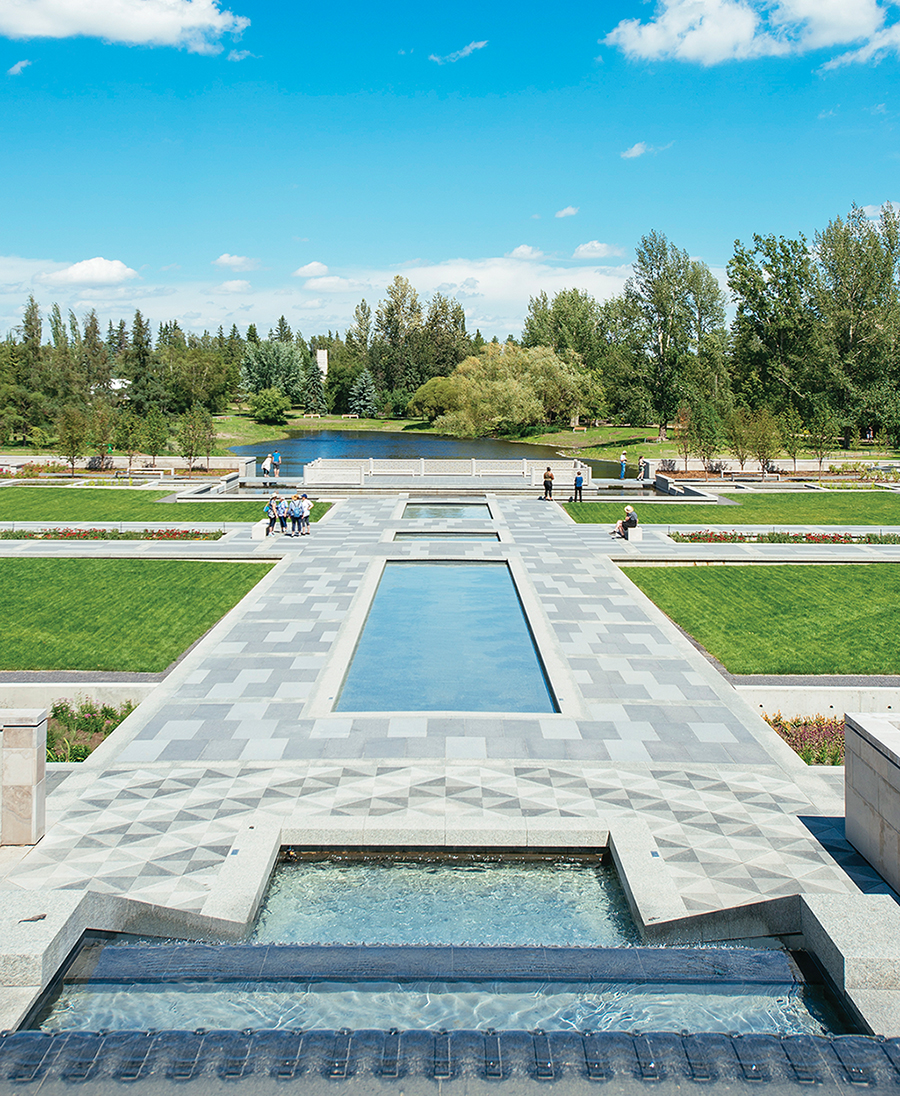The University of Alberta Botanic Garden – formerly the Devonian Botanic Garden – was established in 1959, and since then has received several additions, including the Kurimoto Japanese Garden in 1998. However, a donation made roughly a decade ago completely changed the game for the institution.
Aga Khan, the spiritual leader of the world’s Ismaili Muslim community, reached out to the Botanic Garden with a $20 million USD gift. “No one had planned on that,” says Lee Foote, director of the U of A Botanic Garden and professor in the Faculty of Agricultural Life and Environmental Sciences at the University of Alberta.
The Aga Khan went on an international search to find the project’s architect. He toured with the lead architect of the selected firm to gather inspiration for a full year. In the meantime, the staff at the Botanic Garden got to work. “Staff went from being a small parochial botanic plant garden to adding a lobe to their psyche to incorporate the cultural aspects, the new styles of planting, engaging with all the senses… plants were asked to do a lot of new things,” says Foote. “There were a lot of adjustments made and it was a welcome change for us.”
The new Aga Khan Garden, opened in June 2018, is Islamic-inspired – an important designation. While there are Islamic gardens throughout the world, Foote says, each garden is uniquely fitted to the environment in which it’s located. An Islamic garden in one country will look dramatically different than an Islamic garden in another. For the Aga Khan Garden – which is the northern-most Islam-inspired garden in the world – the focus was placed on plants that could withstand the Canadian climate. “Pomegranates, dates, figs, are not going to work here. What’s going to work are native vegetation, hardy plants from the foothills of the Himalayas. We sourced some really unique, beautiful plants that work in northern latitudes,” says Foote.
